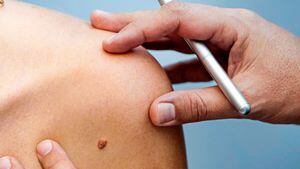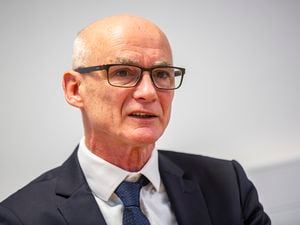Extra clinics led by rise in skin cancer concerns
Increasing concerns about skin cancer have led to one local practice introducing mole and skin lesion clinics to cope with the demand and reduce waiting times.

Healthcare Group skin cancer lead Dr Edward Partridge said the practice had noticed a significant rise in patient awareness of the condition with people looking for advice on a lesion, or asking for a mole or general skin check-up.
‘This is very positive as we continue to encourage people to be skin-aware and take pre-emptive actions towards skin cancer. Early intervention in skin cancer or pre-cancerous lesions typically results in positive patient outcomes and better treatment options,’ he said.
The additional clinics include four for mole and skin lesions.
‘We anticipate that these extra clinics will result in significantly reduced waiting times,’ said Dr Partridge.
Every GP group has a doctor with a special interest in skin lesions.
Island Health is the largest group in the island, and it has two, Drs Duncan Watt and Ian Baxendale.
Dr Watt said while he was aware of some delays in accessing specialists who remove high risk and more complex skin cancers, there were none in seeing either himself or Dr Baxendale, who can both diagnose skin cancer and manage some of them.
‘We have not noticed a significant increase in people coming to us regarding this.
‘It did increase post-pandemic, but has levelled off. We do, however, within our own surgery see more people requesting thorough skin checks via our mole mapping service.
'This uses state-of-the-art specialist computers and cameras to document moles and track any subtle changes that can represent cancer.’
Dr Baxendale is a member of a group of doctors who comprise the Skin Cancer Multidisciplinary Team which meets every two weeks to discuss the latest patients to be diagnosed and to agree management plans.
‘Each fortnightly meeting there are usually 20-30 cases to discuss, which are made up of a mixture of pre- and post-op cases,’ he said.
‘On average we are seeing around two new diagnoses of melanoma each week island-wide.’
Most skin cancers are not serious and can be removed in a simple minor operation, often in the GP surgery.
Higher risk lesions need to be managed by a consultant dermatologist, employed by HSC, or consultant surgeons at the MSG.
‘We are seeing increasing numbers of both melanotic [serious] and non-melanotic [less serious] skin cancers,’ said Dr Watt.
‘Some sources cite that the prevalence of skin cancer in the Channel Islands is two or three times higher than the UK.
‘I believe this is due to multiple factors including an outdoor lifestyle, (in parts) a more affluent populations that like sunny holidays, and an ageing population which grew up on the beach and in greenhouses.
‘Additionally good access to diagnostics may play a factor.’
An MSG spokeswoman said that while all skin cancer referrals go to HSC’s consultant dermatologist in the first instance, if more specialist care is required the patient is referred to the MSG.
Depending on where the skin cancer is, the patient may be referred to Richard Vowles, Tom Fysh or Mike Blundell.
She said there had been a steady increase in referrals over the past few years, leading to a slight backlog in patients needing some minor procedures.
‘But overall, patients who have been diagnosed with basal cell carcinomas are seen within the required eight-week time frame and patients who have been diagnosed with squamous cell carcinoma are seen within two to four weeks.’
The most recent report on Guernsey mortality trends was published in August and covered the period 2019-2021.
It showed that over a three-year period there were 19 deaths attributed to malignant melanoma, or an average of six deaths per year.
The most prevalent cause of death in the same period was lung cancer, which had seen 112 deaths or an average of 37 a year.





